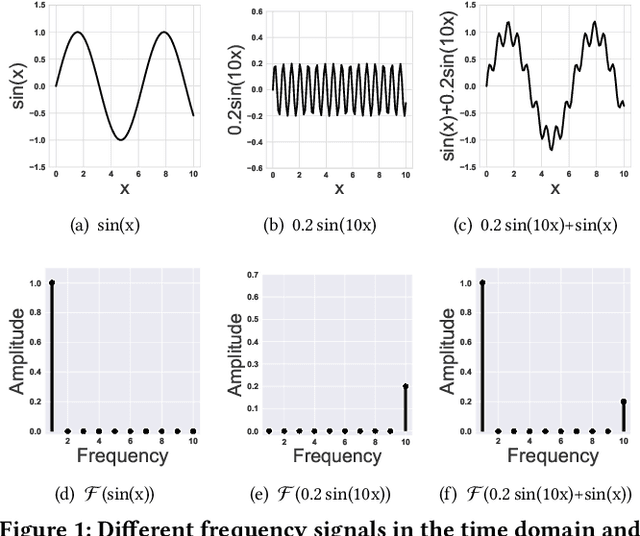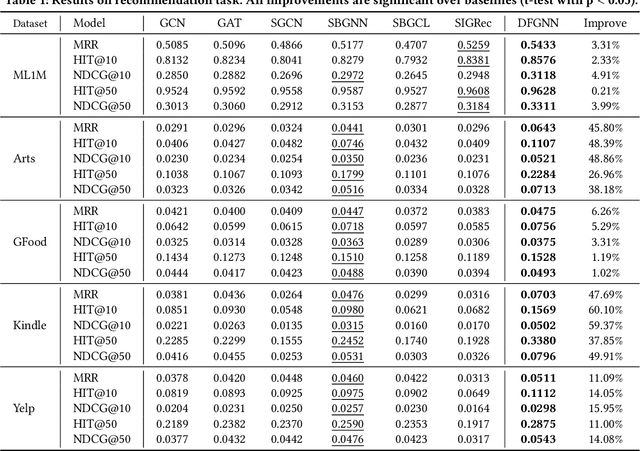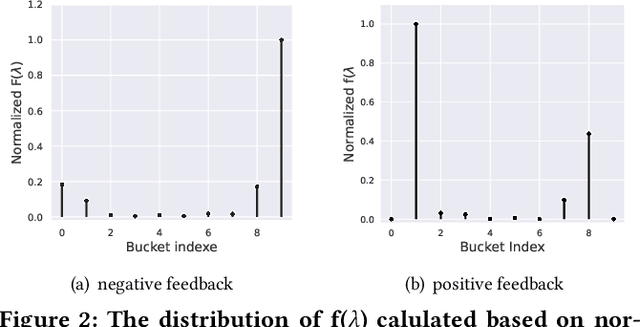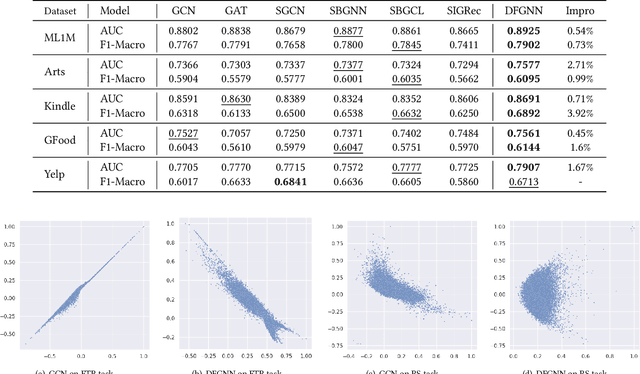DFGNN: Dual-frequency Graph Neural Network for Sign-aware Feedback
Paper and Code
May 24, 2024



The graph-based recommendation has achieved great success in recent years. However, most existing graph-based recommendations focus on capturing user preference based on positive edges/feedback, while ignoring negative edges/feedback (e.g., dislike, low rating) that widely exist in real-world recommender systems. How to utilize negative feedback in graph-based recommendations still remains underexplored. In this study, we first conducted a comprehensive experimental analysis and found that (1) existing graph neural networks are not well-suited for modeling negative feedback, which acts as a high-frequency signal in a user-item graph. (2) The graph-based recommendation suffers from the representation degeneration problem. Based on the two observations, we propose a novel model that models positive and negative feedback from a frequency filter perspective called Dual-frequency Graph Neural Network for Sign-aware Recommendation (DFGNN). Specifically, in DFGNN, the designed dual-frequency graph filter (DGF) captures both low-frequency and high-frequency signals that contain positive and negative feedback. Furthermore, the proposed signed graph regularization is applied to maintain the user/item embedding uniform in the embedding space to alleviate the representation degeneration problem. Additionally, we conduct extensive experiments on real-world datasets and demonstrate the effectiveness of the proposed model. Codes of our model will be released upon acceptance.
 Add to Chrome
Add to Chrome Add to Firefox
Add to Firefox Add to Edge
Add to Edge